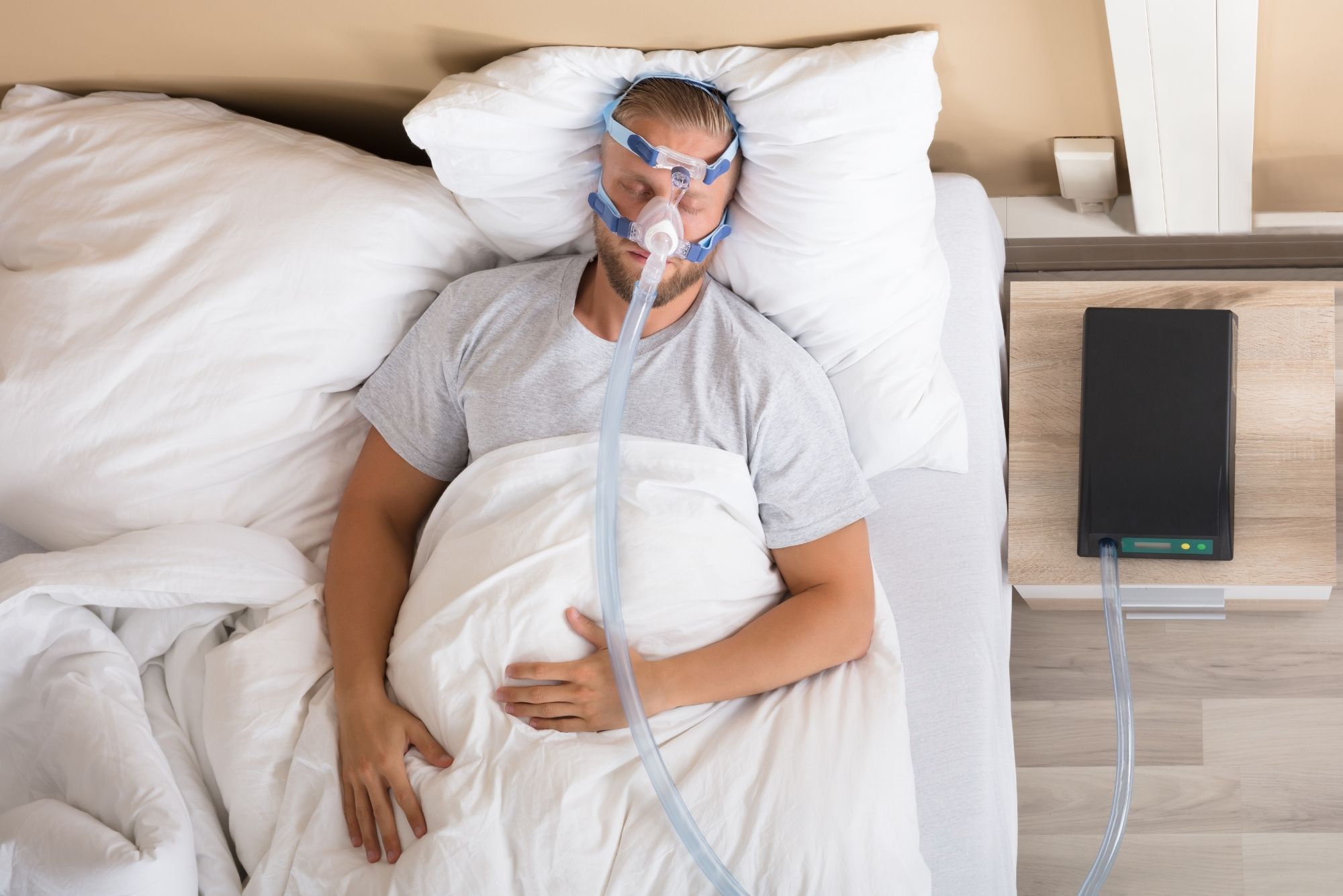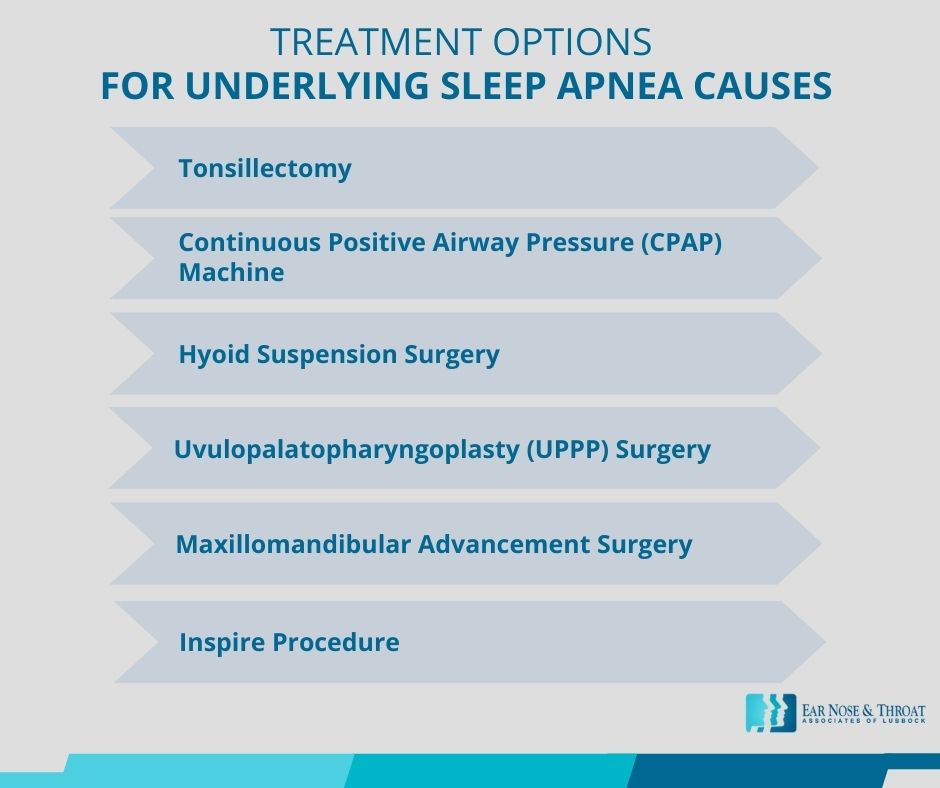Yes, Sleep Apnea Can Be Cured Permanently — Here’s How

Sleep apnea causes a variety of short- and long-term health problems for an estimated 22 million Americans, and it can be difficult to cure.
Many long-term diseases — like asthma and rosacea — can be treated and well controlled, but not cured. The difference between these conditions and sleep apnea is that these conditions have medical causes, whereas sleep apnea has an anatomical cause.
So while you can’t take a pill to fix an anatomical issue, a variety of treatment options do exist to address the underlying anatomical causes of sleep apnea.
So can sleep apnea be cured? In many cases, the answer is yes!
What Is Sleep Apnea?
The word apnea is a medical term for slowed or stopped breathing. A person with sleep apnea slows or stops their breathing repeatedly while they sleep.
The most common type of sleep apnea is called obstructive sleep apnea. Obstructive sleep apnea occurs when something blocks your airway while you sleep.
During sleep, your muscle tone is much lower than when you’re awake. Even the muscles in your airway relax. This can cause the tongue and tonsils to droop backwards and block off your airway. In other cases, some people’s jaws or throats are simply shaped in such a way that their airway collapses when they sleep.
Weight can also have a direct effect on sleep apnea. Fatty tissue in the neck can put pressure on the airways of larger-bodied individuals during sleep.
An obstructed airway prevents your lungs from getting the air they need to function properly, and they can no longer provide adequate oxygen to the rest of the body. This can lead to devastating consequences, especially over the long term.
Can Sleep Apnea Be Cured?
A cure is relief from the symptoms of disease. In most cases, when treatments are able to address the underlying anatomical issue causing the problem, sleep apnea can actually be cured!
Challenges in Curing Sleep Apnea in Adults
In children dealing with sleep apnea, removing the tonsils and adenoids almost always cures the sleep apnea.
Sleep apnea can be a bit more challenging to cure in adults because there can be more complicating factors. Weight gain, for instance, has a variety of causes that aren’t always easy to address. Aging causes a natural decrease in muscle tone that’s also difficult to remedy. And anatomical issues require more involved treatments, such as surgeries, to correct.
The Most Effective Ways To Cure Sleep Apnea
Tonsillectomy
We already mentioned that tonsillectomy and adenoidectomy typically cure children who struggle with sleep apnea. But this same surgery can be helpful for adults who still have their tonsils as well.
Tonsillectomy recovery is more difficult for adults. If you decide to go this route, you should plan to take at least two weeks off work after the procedure.
If this is the only issue, then the tonsillectomy should cure the sleep apnea!
Continuous Positive Airway Pressure (CPAP) Machine
For people who are able to tolerate wearing a mask while they sleep, a CPAP machine is an effective way to cure the symptoms of sleep apnea. CPAP machines have been around for years and are still the most common treatment for sleep apnea.
The machine works by continuously blowing air into your airway while you sleep, keeping your airway open and your body oxygenated.
Hyoid Suspension Surgery
A hyoid suspension surgery pulls the hyoid bone — a small, u-shaped bone in the front of your neck — forward, helping to stabilize the airway and prevent it from collapsing during sleep. A surgeon performs the procedure on patients under general anesthesia, and a short hospital stay is usually involved.
Uvulopalatopharyngoplasty (UPPP) Surgery
UPPP surgery modifies the back of the throat and reshapes the roof of the mouth. A surgeon removes the tonsils if they are still in place, and then makes several small incisions in the soft palate. When suturing these incisions, the surgeon tightens the palate, making it less likely to interfere with airflow.
A UPPP can be extremely helpful for a patient who experiences snoring due to loose tissue in the soft palate. Unfortunately, recovery from this procedure is fairly difficult. An overnight hospital stay for pain management is generally required.
Maxillomandibular Advancement Surgery (MMA)
Maxillomandibular advancement surgery is the most intense treatment we’ll mention in this post. While it is highly effective at curing sleep apnea, it is also quite invasive.
MMA involves a surgeon cutting and moving the patient’s jaw bones forward and securing them in position with titanium screws and plates. Because of its more extensive nature, this procedure comes with more risks and a longer recovery time than the others we’ve mentioned.
Inspire Procedure
In our ENT practice, we’ve found the Inspire procedure for sleep apnea to be as or more effective than any of the surgeries listed above. And it’s much less invasive and less painful as well!
Inspire offers a maskless alternative for people who aren’t able to sleep with their CPAP machine. It works like a pacemaker for your tongue. Instead of connecting to your heart, however, Inspire connects to the nerve that controls your tongue movement.
A surgeon implants the Inspire device in your chest, and a sensor detects when you’re trying to take a breath. When it detects this, Inspire gently encourages your tongue to move slightly forward, clearing your airway for each breath. This effectively cures the symptoms of sleep apnea by using your own nerves and muscles!

Yes, Sleep Apnea Can Be Cured!
The good news is that in many cases, sleep apnea can be cured successfully! The treatment you choose is ultimately up to you, the patient. A good ENT doctor can discuss your treatment options and help you decide which is best for you. Then you’ll be on your way to a better night’s sleep!
Dr. Cuthbertson is a physician at Ear Nose & Throat Associates of Lubbock. He joined the team at ENT Lubbock from Houston, where he was chief resident of the prestigious Bobby R. Alford Department of Otolaryngology at Baylor College of Medicine. He is board certified in Otolaryngology and Head & Neck Surgery and has quickly built a reputation, not only as an extremely skilled surgeon, but as an approachable and compassionate clinician adept in the newest standards and technologies. Learn more about Dr. Cuthbertson.
Categories:








